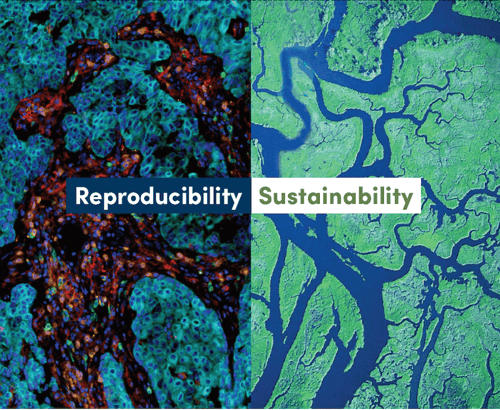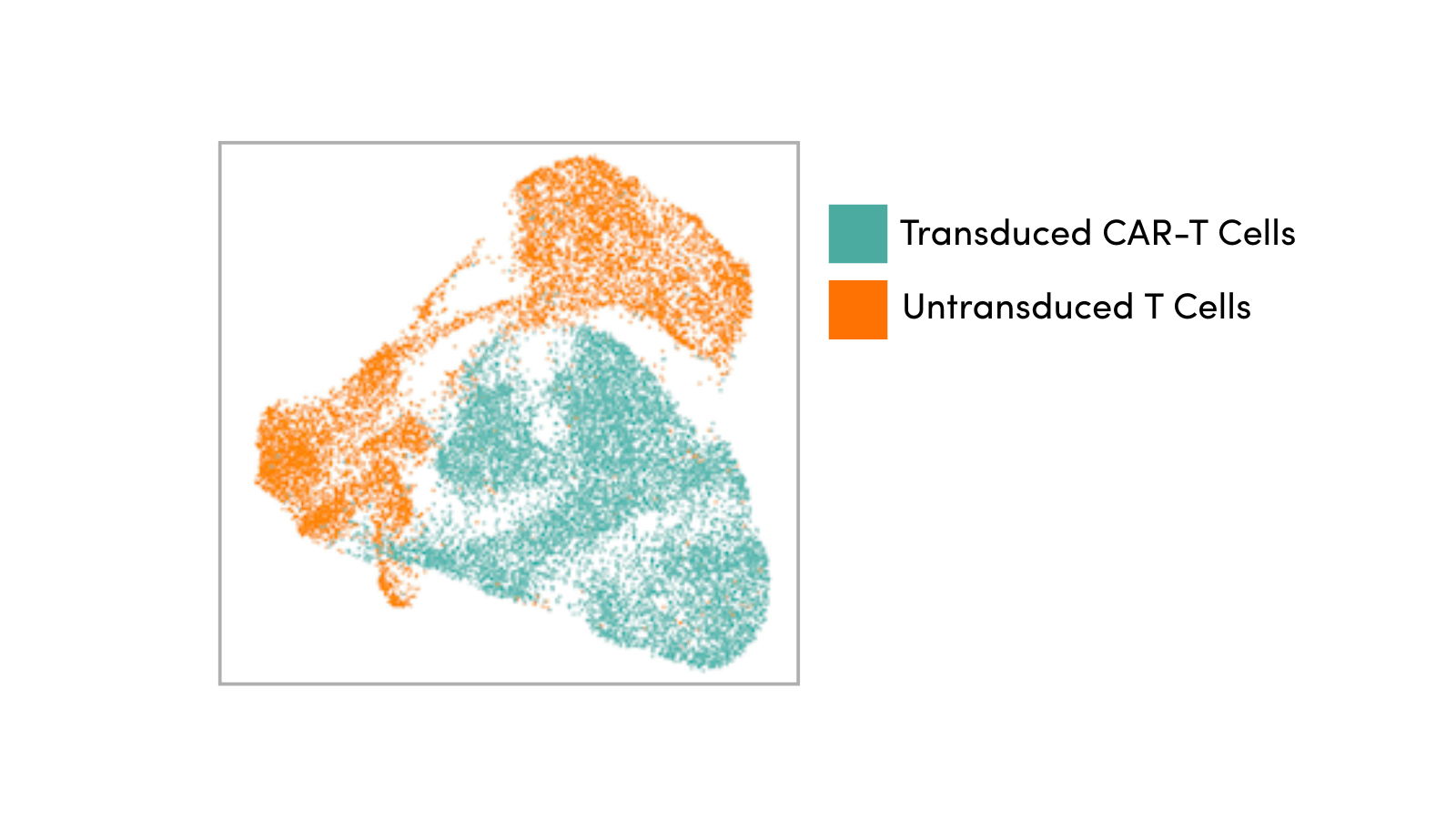Over the years, we’ve talked a lot about the importance of sustainability and corporate social responsibility at Cell Signaling Technology (CST). In everything we do, we consider how it will affect the planet and look for ways to mitigate our global footprint and protect the environment through sustainable practices, volunteer opportunities, and charitable giving. We’ve installed solar panels, implemented composting and single-stream recycling, reduced or eliminated the use of harmful chemicals in our labs, and designed sustainable packaging for our products, along with many other green initiatives. In 2022, this mission continues to be front and center for us, as we recently became the first Life Sciences company to join 1% for the Planet and commit to donating 1% of our total annual revenue to a network of environmental partner organizations.
Through our corporate giving, we seek to support others who are working to reduce humanity’s impact on the planet. As the year comes to a close, we’re proud to demonstrate our ongoing commitment to sustainability through an additional annual donation totaling $500K given to global nonprofits that are on the front lines doing the hard work of education and conservation to protect our climate, food, land, water, and wildlife.

From the time of our founding in 1999, CST has been committed to finding solutions for both researchers and the issues confronting our planet.
Global Giving and Environmental Stewardship at CST
Our commitment to environmental stewardship is part of our core values. It’s not a fad we think is worth talking about just because it’s trending. It’s a mission that’s embedded in our company’s DNA and one that colors everything we do—not just at our global headquarters, but in each of our regional offices, and in the minds of our employees as well.
To select the organizations that received an additional gift as part of our Giving Tuesday initiative, CST employees from across our global offices nominated organizations they felt were important, along with a short description of the organization’s mission and why it’s meaningful. Then, all employees were invited to learn about the nominated organizations to select the ones they wanted to support. It was inspiring to see employees voting for organizations doing great work all over the world!
Here are the employee-nominated nonprofits that we are supporting this year, and why their missions are meaningful to CST employees:
China Mangrove Conservation Network (CMCN) (China)
Founded in 2001, CMCN promotes wetland conservation in China by working closely with governmental organizations, corporations, and other civic entities.
Why CST employees support CMCN: Protecting coastal wetlands and mangrove ecosystems is an important part of protecting biodiversity, and one of the most pressing challenges facing our generation.
Conservation Law Foundation (CLF) (US)
CLF protects New England’s environment for the benefit of all people. They use the law, science, and the market to create solutions that preserve our natural resources, build healthy communities, and sustain a vibrant economy.
Why CST employees support CLF: With CST headquarters located in Danvers, Massachusetts, protecting the New England environment is important to CST employees, and we are proud to support the mission of CLF to forge lasting solutions for the region's most critical environmental challenges.
European Forest Institute (EFI) (EMEA)
EFI conducts research and provides policy support on issues related to forests. The organization facilitates partnerships between producing and consuming countries to foster legal, deforestation-free and sustainable timber, and agricultural commodity production and trade.
Why CST employees support EFI: After oceans, forests are the world’s largest storehouses of carbon. Not only supplying air, water, food, shelter, and medicine, forests hold mysteries of unknown potential. Recently, the devastating loss of old-growth forests to fires and climate change reminds us that now is the time to protect our forests and to support organizations like EFI that are doing this important work.
Hearts in the Ice (EMEA)
Hearts in the Ice is a platform for social engagement that connects students, scientists, manufacturers, environmental organizations, and all who care about the health of our planet in the conversation around climate change. The organization promotes global dialogue surrounding issues relating to adventure, female leadership, STEMM, sustainability, innovation, exploration, diversity, climate action, alternative energy, and pushing our boundaries to deepen our understanding of how powerful individual action can be.
Why CST employees support Hearts in the Ice: There are imminent dangers for coastal communities as a result of climate change, including rising sea levels, heavy rainfalls, and tropical storms. These issues are directly affecting the Netherlands, coastal Europe, and everywhere on the planet. We recognize that finding a more sustainable path forward for our children and our natural world will require the thoughtful types of conversations and engagement promoted by Hearts in the Ice.
NACS-J (Nature Conservation Society of Japan) (Japan)
Since its establishment 70 years ago, NACS-J has been active in all aspects of nature conservation in Japan and has been certified by the government as a public interest incorporated foundation. The organization has developed policy recommendations, conservation movements, as well as environmental education programs, research, and studies aimed at making everyone a local nature conservationist.
Why CST employees support NACS-J: As a company that inspires and promotes science, we recognize that it’s possible to both support the scientific field and promote environmental conservation at the same time.
Oceanic Wildlife Society (OWS) (Japan)
Established in 1998, OWS promotes activities to "get close to nature, learn about nature, and convey the importance of nature" by inspiring individuals to make a connection to the sea and the creatures that live there.
Why CST employees support OWS: Japan is an island nation surrounded by the sea, and the ocean has always been an important, familiar resource. Like OWS, we believe that protecting the sea is of the utmost importance, not just for the health of the planet, but as a way to preserve Japanese culture and ensure access to the healing powers of the ocean.
Rocky Mountain Institute (US)
RMI is an independent, non-partisan, nonprofit organization of experts who work across disciplines to accelerate the transition to clean energy. The organization’s mission is to transform global energy systems to secure a clean, prosperous, zero-carbon future for all.
Why CST employees support RMI: As scientists, we recognize the important nature of the work RMI does, and the organization’s ability to promote lasting change by decarbonizing energy systems in the world's most critical geographies to cut greenhouse gas emissions.
Shan Shui Conservation Center (China)
The Shan Shui Conservation Center is dedicated to species and ecosystem protection through community-based conservation that seeks to balance the issue of humans coexisting with nature. The organization focuses on protecting endangered species like the snow leopard, giant panda, and snub-nosed monkey in western China, as well as urban area restoration projects.
Why CST employees support Shan Shui: Using the power of individuals to measure, collect, and help educate others on the importance of protecting our natural resources encourages individual action. This can change the world.
Giving Is in Our DNA
Last year, our Global Giving campaign focused on basic health care, food insecurity, and mental health as a way to help alleviate the impacts of the COVID-19 pandemic.
In the years ahead, we will continue to identify areas of need with employee input and commit time, effort, and resources to support endeavors that help protect our environment.
Additional Resources
-
Learn more about our commitment to sustainability and download our 2021 Social and Environmental Impact Report
-
Blog: CST Turns 25: Celebrating a Quarter Century of Antibodies & Innovations
Alexandra Foley, Scientific Marketing Writer and CST Blog Manager, contributed to writing this post.






